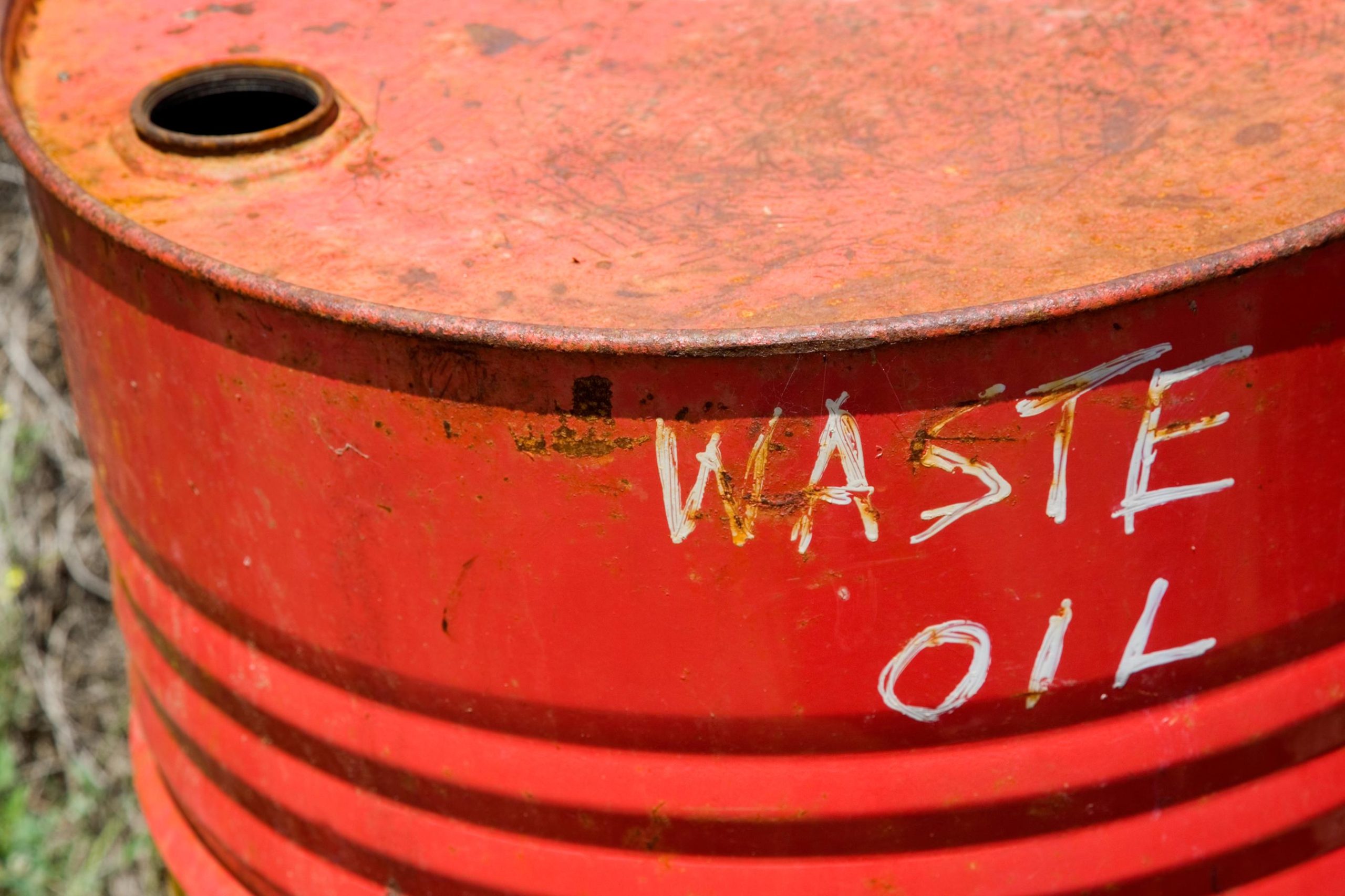In today's eco-conscious world, it's essential to understand how waste oils should be stored and disposed of to minimise environmental impact. This guide walks you through various waste oil disposal methods, helping you stay within legal and environmental standards.
Understanding Waste Oil
Importance of Proper Waste Oil Storage and Disposal
Proper storage and disposal of waste oil offer significant benefits by preventing pollution and conserving resources. Handling waste oil correctly helps avoid legal and environmental repercussions, mitigates the risk of hazardous spills and leaks, and protects ecosystems from long-term damage. Additionally, these practices support sustainability goals by reducing the demand for new resources and minimising waste.
Environmental and Health Impacts of Improper Waste Oil Disposal
Improper waste oil disposal can severely impact the environment and public health. It can pollute water sources and contaminate soil, posing risks to human health and biodiversity. Such pollution can lead to the disruption of aquatic life, affect water quality, and result in the accumulation of toxins in the food chain. Additionally, improper disposal practices can contribute to air pollution and respiratory issues in communities exposed to harmful emissions.
Types of Waste Oil
Engine Oil
Engine oil can accumulate harmful contaminants, making its proper disposal essential for effective waste management.
Hydraulic Oil
Widely used in various industries, hydraulic oil requires careful disposal to avoid environmental hazards.
Industrial Lubricants
While vital for machinery, industrial lubricants must be disposed of correctly to prevent environmental damage.
Waste Oil Disposal Options
If you're wondering where to dispose of waste oil, there are a number of convenient options available for you to check out.
Community Recycling Programs
Participating in community recycling programs provides a safe and effective way to dispose of waste oil, significantly promoting environmental sustainability. These programs help individuals and businesses alike to ensure their waste management practices meet environmental standards, thereby reducing pollution and promoting a healthier planet. Engaging with these programs also fosters community involvement in environmental preservation efforts.
Recycling
Recycling waste oil not only supports environmental health but also offers significant economic benefits by reducing the demand for new resources. This process involves transforming used oil into usable products, thus extending the life cycle of natural resources and minimising waste. Below are some of the examples of products that can be derived through recycling waste oil.
Industrial Burner Oil
Industrial burner oil created from recycled oil provides a cost-effective and energy-efficient solution for industries requiring substantial heat output, such as power plants and manufacturing facilities. This recycled product helps companies reduce waste while maintaining high energy efficiency.
Mould Oil
In the construction industry, mould oil is essential for ensuring smooth removal of castings from their moulds. Derived from recycled oil, this product offers an environmentally friendly alternative to new oil, helping reduce waste and resource consumption in manufacturing processes.
Hydraulic Oil
Recycled hydraulic oil is processed to remove impurities and restore its performance capabilities. It is used in various hydraulic systems found in industrial machinery and vehicles, providing a sustainable solution that maintains system efficiency and reduces environmental impact.
Asphalt Extenders
Recycled oil is often used as an asphalt extender in road construction. Mixing recycled oil into asphalt not only reduces the overall cost of road materials but also enhances the flexibility and durability of the asphalt, contributing to longer-lasting road surfaces.
Marine Oils
Treated recycled oil can be utilised in marine applications, where it serves as a sustainable alternative to new marine oils. This use of recycled oil helps reduce the environmental impact of maritime activities by lowering the reliance on new, virgin oil products and promoting the recycling of existing resources.
Apart from the examples provided, there are multiple other products that can be created using waste oil.
Re-refining
Re-refining waste oil purifies it for reuse, producing oil that is of comparable quality to newly refined oil. This method is particularly beneficial as it conserves resources and reduces environmental impact. The refined oil can serve the same applications as new oil, demonstrating the practical benefits of this sustainable approach. Some of the derivations through this process are re-refined transformer oil and base oil.
Re-refined Transformer Oil
Re-refined transformer oil is a product of recycling used transformer oil to restore its performance to meet or even exceed original specifications. This re-refining process involves removing contaminants, water, and gases that degrade the oil over time. The result is a sustainable option that reduces waste and conserves resources. Re-refined transformer oil is extensively tested to ensure it meets rigorous industry standards for dielectric strength, moisture content, and purity. It is a reliable and environmentally friendly alternative for electrical utilities and industries relying on transformers.
Re-refined Base Oil
Re-refined base oil is produced by recycling used motor oil, which is then processed to remove impurities and restore its quality to that of virgin base oil. This process not only helps in conserving crude oil resources but also significantly reduces environmental pollution. Re-refined base oils are versatile and can be used to produce new lubricants, achieving performance levels suitable for a wide range of automotive and industrial applications. By opting for re-refined base oils, businesses contribute to a circular economy, enhancing sustainability while maintaining high performance in machinery and engines.
Repurposing
Repurposing waste oil as fuel in industrial boilers is an innovative and sustainable waste reduction method. This strategy not only conserves resources but also offers a practical and efficient alternative energy source for industries. Using waste oil as fuel helps reduce reliance on traditional fossil fuels, thus contributing to energy diversification.
Waste Oil Collection Services
Professional waste oil collection services play a crucial role in ensuring compliance with environmental regulations. These services provide businesses and individuals with a reliable means of disposing of waste oil, thus ensuring that their operations do not harm the environment. By using professional collection services, stakeholders can achieve better environmental outcomes and enhance their corporate responsibility profiles.
The Final Step: Why Benzoil is Your Best Choice for Waste Oil Collection
Choosing the right disposal method is crucial for ensuring compliance and protecting the environment. By following these guidelines and selecting appropriate disposal methods, you can guarantee that your waste oil management practices are both effective and environmentally friendly.
To support these efforts, Benzoil offers comprehensive waste oil collection services, providing a reliable solution to manage your environmental responsibilities effectively. Our services aim to help prevent pollution, conserve resources, and align with sustainability goals, making us an essential choice for responsible waste management.


